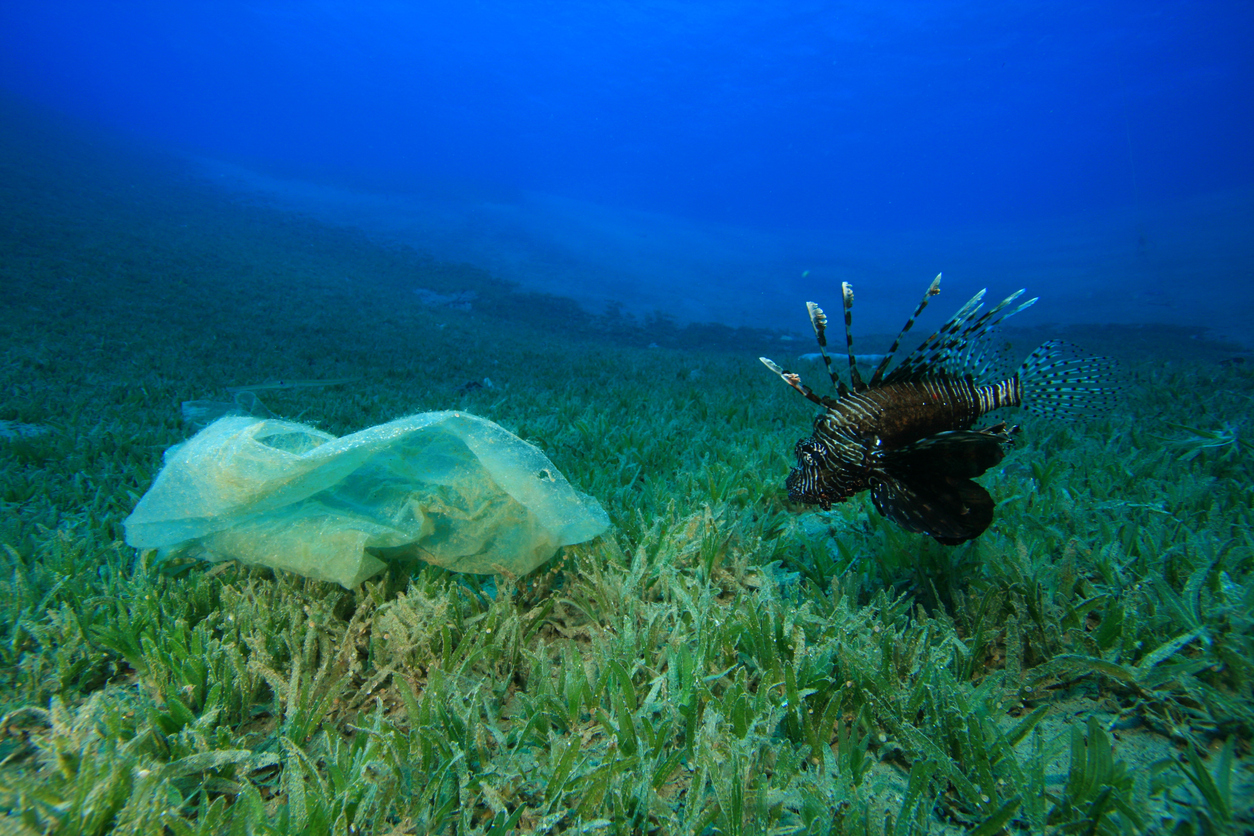Happy (early) Earth Day Y’all! You may not know it, but you’re most likely leaving behind a big, ugly footprint. It’s not pretty–it’s plastic. Here are a few points to ponder from earthday.org:
- Every minute, one million plastic bottles are bought and almost 2 million single-use plastic bags are distributed around the world.
- Every day in the US, 500 million plastic straws are used. That’s enough to circle the earth twice!
- The United Nations estimates that the average square mile of ocean contains 46,000 pieces of floating plastic.
- If nothing changes in our consumption of plastic, by 2050, there will be more plastic in the ocean than fish, by weight.
You may wonder: what does nutrition and health have to do with plastic? My answer? Plenty!
As consumers, not a minute goes by when we don’t buy food, water or consumer products in plastic, store something in plastic, cook something in plastic or eat something packaged in plastic. While plastic has revolutionized packaging since it’s inception in the 1950’s, more than half of what’s been produced is still hanging around in landfills, in nature and especially in the oceans.
How Plastic Directly Affects Your Health
Chemicals like BPA and phthalates in plastic that leach into food and water could cause an increased risk of reproductive system abnormalities, early puberty, adult-onset diabetes, obesity and cancer, to name a few. Bisphenol A (BPA) is one chemical that’s garnered lots of media attention because in the body, it mimics the hormone estrogen. You are storing BPA in your body and it’s not going anywhere. A 2003 CDC study found detectable levels of BPA in 93% of urine samples from people 6 years and older. BPA is banned in children’s toys and baby bottles due to their possible effects on child development.
What Can You Do?
- Avoid buying food stored in plastic, especially high-fat foods like mayonnaise, cooking oil, and acidic foods like tomato sauce. Reuse glass jars to store food in or recycle them.
- Stop using straws. I know, it’s fun to drink out of a straw, but just don’t!
- Avoid cooking with plastic and be careful about how you use plastic wrap. Use foil or wax paper or recyclable wraps when the wrap will come in direct contact with the food. (Check out these earth-friendly food wraps)
- Avoid cooking in plastic, even if it says BPA free.
- Stop buying individual water bottles. Be an earth-friendly traveler and bring along a reusable water bottle instead of buying an overpriced one at the airport!
- Purchase grains, nuts and cereal in bulk using a reusable bag.
- Opt for glass, porcelain or stainless steel containers, especially for hot foods and liquids. Bring your own travel mug to the coffee house instead of getting a throwaway cup.
- If you often bring home to-go boxes from restaurants, consider bringing your own glass containers from home.
- Use utensils from home instead of the disposable ones at work.
How Plastic Indirectly Affects Your Health
BPA has been found in all the Earth’s oceans. The chemicals in plastic and the plastic itself are finding their way up the food chain to your plate. A study in the UK estimated that 1/3 of the fish caught there had plastic inside.
Also, plastic is made from petroleum—it’s estimated to account for 8% of global oil production. The EPA estimates that five ounces of carbon dioxide is released for every ounce of plastic (typically PET– Polyethylene Terephthalate) that makes up a plastic water bottle. So our love of plastic could affect climate change, which can affect availability of water, cause extreme heat waves and drought, and degraded air quality, which can affect our health in many ways.
What Can You Do?
- Take the plastic footprint quiz—your plastic consumption may surprise you!
- Stop using plastic bags and reuse the plastic bags you do have instead of getting new ones. Produce bags can be used for dog waste or at the farmer’s market.
- Consider:
- Buying detergent and other plastic bottles in family size. Or buy in cardboard. Buy containers (like liquid soap) that can be refilled instead of replaced.
- Using razors with replaceable blades instead of disposable ones.
- Reusing garden pots or taking them back to the garden shop for reuse.
- Use cardboard egg containers for starting seeds instead of small plastic pots.
- Use cardboard cotton swabs for your ears instead of plastic—or skip altogether.
Your plastic footprint can make a difference to your health and that of the planet. Visualize how you can live with less plastic in your life.
Other articles you may be interested in:
- Live Cleaner This Year – Part One: Eating Clean by Bridget Swinney, MS RD
- Live Cleaner This Year – Part Two: Clean Beauty by Bridget Swinney, MS RD
- 5 Foods You Should Consider Buying Organic by Bridget Swinney, MS RD
- The Power Of Green by Bridget Swinney, MS RD













